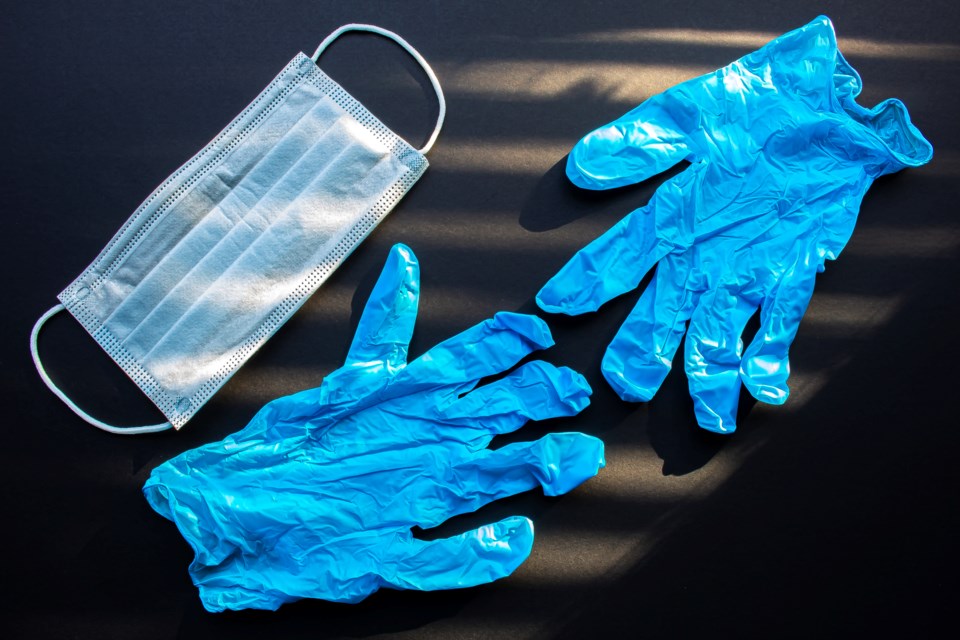Saskatchewan has announced plans to abolish all COVID-19 health measures by the start of next month.
The province's own proof of vaccination requirements will be the first COVID-19 health orders to go, going out of effect starting Feb. 14. The remaining health orders, including the province's mask mandate for public indoor spaces and schools, will expire Feb. 28.
Starting March 1, no COVID-19 health orders will remain in Saskatchewan. Saskatchewan is the first Canadian province to take such a step during the omicron wave.
As of Feb. 8, by provincial rules, Saskatchewan residents have to show proof of COVID-19 vaccination or a recent negative COVID-19 test to enter restaurants, bars, businesses and other settings.
In a Feb. 8 press conference, Saskatchewan Premier Scott Moe said the measures were a step toward something resembling pre-pandemic life.
"Proof of vaccination has been an effective policy, but its effectiveness has run its course," said Moe in the announcement.
"We want things to be as normal as they can."
The province also plans to lift all rules regarding isolation requirements at the end of February, meaning people who test positive for COVID-19 will no longer need to isolate during potentially infectious periods.
Private businesses will be able to have their own rules on mask use and proof of vaccination. Proof of vaccination records and QR codes will be still available for purposes outside provincial purview, including for travel or use in other provinces or locations.
Other changes
Saskatchewan has changed its COVID-19 reporting guidelines, going from daily data updates like most other provinces - including Manitoba - to weekly, online-only updates. Information about new COVID-19 cases, their locations, PCR tests, vaccinations and deaths will only be updated weekly on Thursdays. New data reporting will also not mention how many people are hospitalized or in intensive care due to COVID-19 at all.
“Starting the week of February 7, public health will cease daily reporting and will begin reporting key COVID-19 data weekly on Thursdays. It will include the laboratory-confirmed new cases, deaths, tests and vaccination information overall and by zone,” reads the provincial government’s website.
The province plans to pare down its data reporting even further starting in April, announcing plans to move from the weekly updates to one update a month.
In addition, the province has announced that it will stop almost all lab testing of PCR test results, will no longer report sites of COVID-19 outbreaks or contact tracing altogether. As of Feb. 7, Saskatchewan plans to stop offering most PCR testing for COVID-19 to the general public, leaving people curious as to whether or not they have COVID-19 to rely on rapid antigen tests.
In most locations throughout the province, PCR testing will now only be available by referral for members of the public, for people requiring in-patient care in hospitals, people with possible COVID-19 symptoms in First Nations and Metis communities and other priority groups, including long-term care and personal care home residents.
Rapid tests are available throughout Saskatchewan at no cost - including at local offices in Creighton - but are less accurate at detecting COVID-19 than PCR testing and the results are not logged by the province.
Booster shot expansion
Saskatchewan has also expanded booster shot eligibility to all youths ages 12-17, with youths in that age group able to receive a third dose as early as five months after a second dose.
"The omicron variant of COVID-19 is more transmissible and has a shorter incubation period with many cases remaining asymptomatic. Evidence is showing greatly enhanced protection against severe illness and hospitalization with a third/booster dose of vaccine," reads the provincial announcement.
"All Saskatchewan residents are strongly encouraged to get vaccinated for COVID-19 and all residents 12 and over are eligible for a third/booster dose."
Dispute on vaccine info
In the Feb. 8 announcement, Moe also said that COVID-19 vaccines were not effective at stopping the transmission of omicron – a claim that runs counter to statements made by medical professionals, including the Saskatchewan Medical Association (SMA).
“Vaccination is not preventing transmission of Omicron as it did with previous variants,” Moe said.
In a full-page ad in major Saskatchewan newspapers issued last week, the SMA, the College of Physicians and Surgeons of Saskatchewan, the Saskatchewan Union of Nurses, the College of Registered Nurses of Saskatchewan, the Saskatchewan College of Family Physicians and the Saskatchewan College of Pharmacy Professionals stated that vaccination does both reduce COVID-19 transmission and greatly reduces the risk of severe outcomes.
“Contrary to what you might have heard, COVID-19 vaccination does reduce transmission. In addition, three doses provides over 90 per cent protection against severe illness,” reads the ad.
“Please get vaccinated. Get your eligible children vaccinated. Vaccination is the path to safely lifting public health measures. We’re not there yet.”
As of last week, 899,829 Saskatchewan residents – 81.3 per cent of all eligible people in Saskatchewan and 76.3 per cent of the total population of the province – had at least two doses of COVID-19 vaccine.




